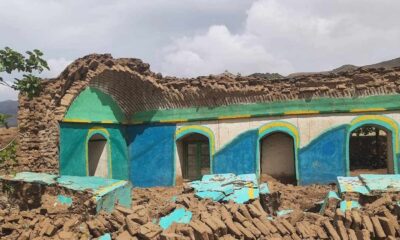Business
Afghanistan exports goods to Europe for first time since IEA takeover
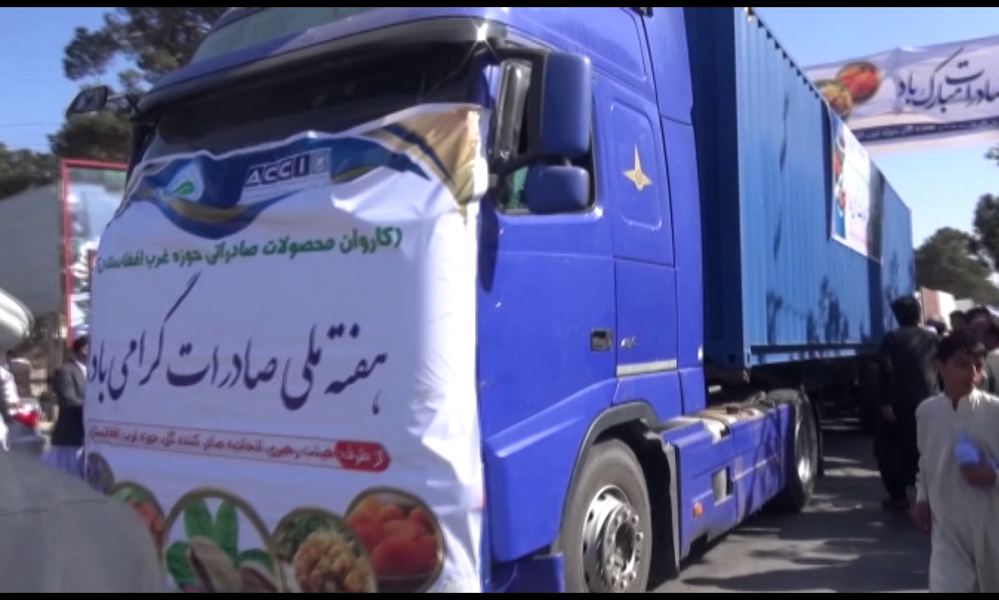
Dozens of cargo trucks left Afghanistan on Monday in what marked the first consignment of exports to Europe since the Islamic Emirate took over the country in August last year.
The convoy left from the western province of Herat and will travel through the Lapis Lazuli route, an international trade route that was inaugurated in 2018.
The shipment involves nearly 30 trucks carrying commodities such as pistachios, sesame, cumin, carpets and almonds, said Yonus Qazizada, the provincial director of trade and investment in Herat.
He said that the commodities worth $5 million are bound for European and Arab countries.
The Lapis Lazuli corridor begins from Torghundi in Herat and continues to Turkmenistan, Azerbaijan, Georgia and Turkey.
This is the second Afghan convoy of exports through Lapis Lazuli since the corridor was inaugured in December 2018.
The first convoy carried dried fruits, herbs and textiles.
Meanwhile, the union of exporters in the western zone said exports increased by 40 percent in 1400 solar year as compared to the previous year.
“This suggests that expectations have grown and economic activities have increased. Unlike the propaganda that is spread, it is a great achievement to dispatch a convoy abroad,” said Mohammad Rafiq Shahir, head of the experts’ council of Herat.
Business
Afghanistan’s economic prospects are bleak: World Bank

The absence of GDP growth coupled with declining external financing avenues for off-budget expenditures paint a bleak picture of Afghanistan’s economic prospects, the World Bank said.
After a severe 20.7 percent GDP contraction in 2021, the Afghan economy contracted further by 6.2 percent in 2022, the bank said in a report.
“While Afghanistan’s agricultural and subsistence economy, including illicit opium production, provided some resilience in rural areas, higher prices, reduced demand, lower employment, and disruptions to services had severe impacts across the country,” it said.
The proportion of households that did not have enough income to meet basic food needs more than doubled from 16 percent to 36 percent in this period, according to the bank.
In the context of deep concerns about the policies of the Islamic Emirate of Afghanistan (IEA), including restrictions imposed on women and girls, the international community, including the World Bank, recalibrated its approach to supporting Afghanistan: first to providing humanitarian support and then to providing off-budget support for basic service delivery and livelihoods.
However, IEA moved to restore domestic revenues, which reached $2.2 billion or 15 percent of GDP in 2022. “Nevertheless, overall economic activity remained depressed, unemployment stayed high, and the banking sector was dysfunctional due to constraints on international transfers and concerns about liquidity and solvency.”
World Bank said that Afghanistan’s economic outlook remains uncertain, with the threat of stagnation looming large until at least 2025. “This economic stagnation will deepen poverty and unemployment, with job opportunities expected to decrease and food insecurity expected to increase.”
The bank noted that for a sustainable future, Afghanistan needs to focus on its comparative advantages, particularly in the agricultural and extractive sectors. Agriculture could be a key driver of growth and poverty reduction, with the potential to create jobs, it added.
Business
Commerce ministry inks 10 MoUs to boost development of small and medium-sized businesses
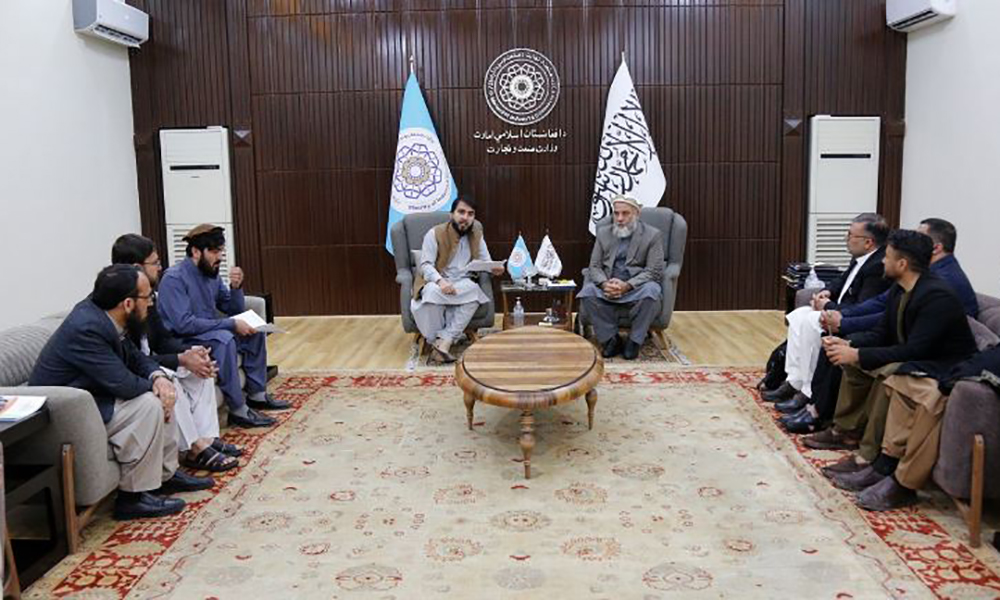
The Ministry of Commerce and Industry said Thursday it has signed cooperation agreements with ten institutions to support the development of small and medium-sized enterprises.
Nooruddin Azizi, Acting Minister of Commerce and Industry, said: “In the implementation of projects, we must pay special attention to our activities and actions and try to make useful use of the projects according to the requirements and benefit the beneficiaries.”
These ten institutions are to present their projects, the total value of which is around over $1.1 million. The projects will be carried out in Kabul, Baghlan, Ghor, Herat, Logar, Nangarhar, Balkh, Badakhshan and Jawzjan provinces and provide direct jobs for about 1,000.
To date, the ministry has signed MoUs for 72 projects in total, collectively valued at about $53.6 million.
These agreements have been signed with domestic and foreign companies for the establishment of small and medium-sized businesses.
In accordance with the principles and laws of the Islamic Emirate and prioritizing the implementation of projects for immigrants and returnees and internally displaced people, the ministry said 635,865 people will benefit through jobs directly and over 4.3 million will benefit indirectly in 25 provinces once these projects are implemented.
Business
Export volume totals over $140 million in last month of 1402
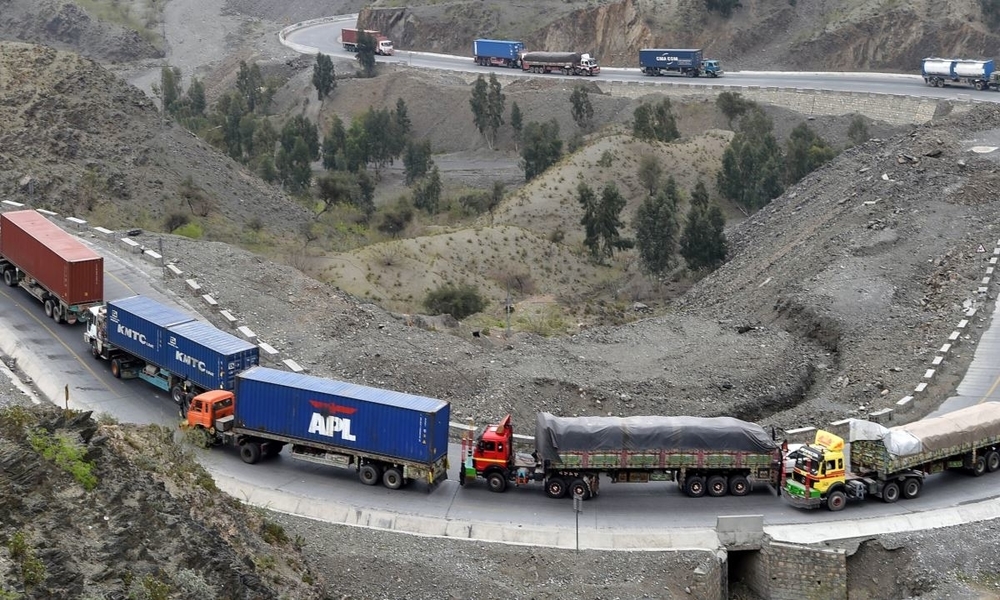
The National Statistics and Information Authority (NSIA) confirmed Tuesday that in the last month of solar year 1402, (March 2024) Afghanistan’s exports totaled $141.1 million and imports totaled $789.6 million.
This was down from $174 million for exports in the same period in 1401. However, imports increased by $99.2 million in 1402, up from $690.4 million.
Most exports in the last month of 1402 went to Pakistan, India and the United Arab Emirates, while in the last month of 1401 exports went to Pakistan, India and China.
-

 Sport5 days ago
Sport5 days agoACL fever grows as fixtures finalized
-

 Latest News5 days ago
Latest News5 days agoOver 50 people dead in traffic accidents over Eid
-

 Latest News5 days ago
Latest News5 days agoUS identifies Kabul airport suicide bomber
-

 Business5 days ago
Business5 days agoAfghanistan-Kazakhstan chamber of commerce opens in Herat
-

 World4 days ago
World4 days agoIsraeli military vows response to Iran attack as calls for restraint mount
-

 Sport3 days ago
Sport3 days agoATN secures exclusive rights to broadcast Paris 2024 Olympics
-

 Latest News4 days ago
Latest News4 days agoPakistani police give Afghans in Balochistan one day to leave
-
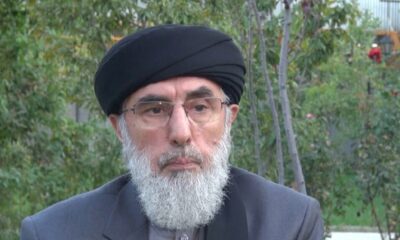
 Latest News4 days ago
Latest News4 days agoHekmatyar slams US for ‘occupying’ Afghanistan’s airspace




